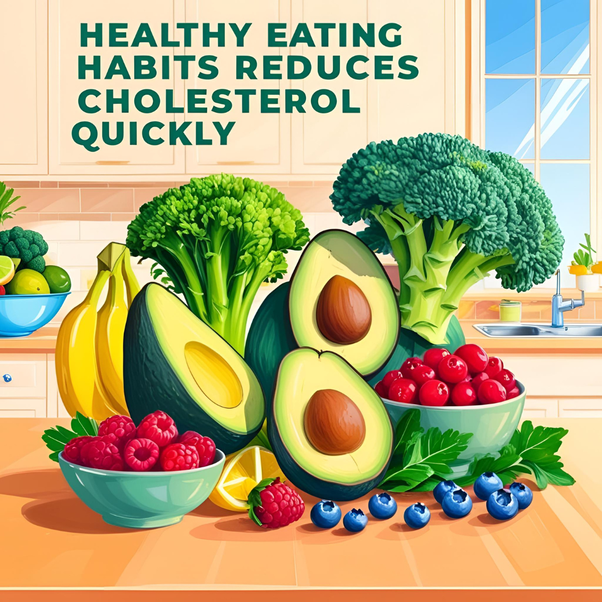Lowering cholesterol in just one week is an ambitious goal, but with the right approach, you can make significant strides. Here are some realistic, science-backed strategies to help reduce cholesterol quickly:

1. Focus on Soluble Fiber
Foods rich in soluble fiber, like oats, beans, lentils, apples, and flaxseeds, can help lower LDL (bad) cholesterol. Soluble fiber binds to cholesterol in the digestive system and removes it from the body. Aim for at least 5-10 grams of soluble fiber daily.
2. Cut Back on Saturated and Trans Fats
Reduce your intake of saturated fats (found in red meat, full-fat dairy, and fried foods) and avoid trans fats (often in processed snacks and baked goods). Replace them with healthier fats like olive oil, avocados, and nuts, which can improve your cholesterol profile.
3. Incorporate Omega-3 Fatty Acids
Fatty fish like salmon, mackerel, and sardines are rich in omega-3s, which can lower triglycerides and boost HDL (good) cholesterol. If you're not a fan of fish, consider flaxseeds, chia seeds, or a high-quality fish oil supplement.
4. Exercise Regularly
Even moderate exercise, like brisk walking for 30 minutes a day, can raise HDL cholesterol and improve your overall lipid profile. Aim for at least 150 minutes of moderate-intensity exercise per week.
5. Limit Added Sugars and Refined Carbs
High sugar and refined carb intake can increase triglycerides and lower HDL cholesterol. Opt for whole grains, fruits, and vegetables instead.
6. Add Plant Sterols and Stanols
Found in fortified foods like certain margarines, orange juice, and yogurt, plant sterols and stanols can block cholesterol absorption and lower LDL levels by 5-15%.
7. Stay Hydrated and Avoid Alcohol
Drinking plenty of water supports overall health, while excessive alcohol can raise cholesterol levels. If you drink, limit yourself to one drink per day for women and two for men.
8. Consider Short-Term Supplements
Certain supplements, like psyllium husk, garlic extract, or green tea extract, may help lower cholesterol quickly. However, always consult your doctor before starting any supplement regimen.
9. Manage Stress
Chronic stress can negatively impact cholesterol levels. Practice stress-reducing techniques like meditation, yoga, or deep breathing exercises.
10. Get Enough Sleep
Poor sleep can disrupt your metabolism and lead to higher cholesterol levels. Aim for 7-9 hours of quality sleep each night.
Collected: Various Source


